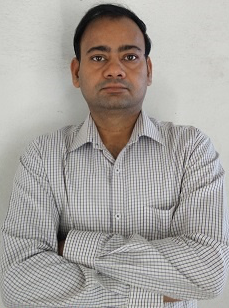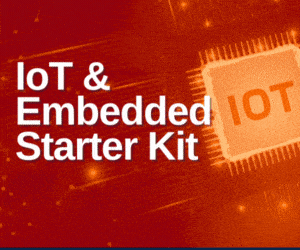
Q. Could you tell us about your organisation?
A. Argus Technologies focuses on end-to-end product development, which covers product architecture, design, design simulation and analysis, circuit board manufacturing, component procurement, assembly and testing.
Q. What are the key technologies you are working on?
A. We work with front-end applications of radio frequency (RF) and microwave, energy or power management gateways for monitoring and control, multi-channel data acquisition systems, tracking solutions, sensors and Internet of Things (IoT) hardware.
Q. Out of these, are there any technologies that you specialise in?
A. We specialise in field-programmable gate arrays (FPGA) and digital signal processing (DSP) based platforms for data acquisition and system-on-a-chip (SoC) prototyping applications. We also work with system simulation, which includes signal integrity, power integrity, thermal management, electromagnetic compatibility (EMC) simulation and reliability analysis. Other areas include industrial monitoring, instrumentation and analysis products for atomic energy, pharmaceuticals, chemical and agriculture sectors and active noise cancellation headsets for airborne applications.
Q. Are there any niche industry applications that you focus on?
A. Those would be defence applications, industrial electronics, and electronics applications in agriculture and environment.
Q. What are the major circuit/system design projects that you are currently working on?
A. We are working on an integrated monitoring and control system for solar power-plants, fibre Bragg grating (FBG) interrogator system for fibre optic sensors used in nuclear and heavy engineering applications, a time domain reflectometer for instrumentation applications, an automatic meter reading solution and ruggedised tablets for industrial and defence applications.
Q. Who all have you partnered with for technologies and components?
A. We have partnered with TTM Technologies, USA, to address our technologically-challenging printed circuit boards (PCBs) manufacturing; the Central Glass and Ceramic Research Institute (CGCRI), Kolkata, for fibre optical sensor technologies; and TME, Italy, for test engineering technologies.
Q. Do you target only global customers or Indian ones too?
A. We target both the global as well as the Indian market. Currently, we see tremendous opportunities in the domestic market for our products and services.
Q. Can you name some of your leading international clients and the kind of work you have done for them?
A. Our clients would be Texcel-UK and Honeywell-USA for our printed circuit board (PCB) design services; Roamworks-UAE for tracking solution design and volume manufacturing; Oceanvision-Australia for data logger for underwater applications; Digonomics-Germany for field-programmable gate array (FPGA) cards for audio console applications; Ensilica-UK, okoLab-Italy and Jaydu-USA for electronic design simulation and analysis services; Sagitta-USA, MONELL-USA, METAVAL-Australia, Networkwave-USA and Bizcon IT for new product development; QL London-UK for electronic manufacturing.
Q. Can you also name some of your leading Indian clients and the kind of projects you have done for them?
A. Our Indian clients would be Honeywell, GE and UTC for our PCB design and prototype manufacturing; Cognizant, TCS/CMC, Reliance, Tata Technologies for hardware design services; Indian Space Research Organisation (ISRO) Labs, Defence Research and Development Organisation (DRDO) Labs, Bharat Electricals Ltd (BEL), Hindustan Aeronautics Ltd (HAL) and Department of Atomic Energy (DAE) for turnkey product development.
Q. What is your marketing strategy to reach global clients?
A. For International customers, our approach is telemarketing through our sales team in the USA or UK, search engine optimisation (SEO) on our website and keeping the Argus website updated with our latest production solutions. We are also paid members of multiple business-to-business portals.
Q. Is your strategy the same for Indian clients too?
A. In addition to the above approach for international clients, we also market through a dedicated sales and marketing team that visits customers and updates them about our products and services. We also participate in technology forums or exhibitions and subscribe to tenders.
Q. How do you see the Internet of Things (IoT) phenomenon? Do you see it driving business growth for India’s independent design houses (IDHs) or is it more of a marketing gimmick?
A. IoT is an upcoming phenomenon and we see the effect of this in industrial segments. Recently, Argus has developed IoT solutions for multiple customers addressing security, industrial sensing and control, medical (critical parameter monitoring) smart devices for irrigation sector, fleet management and wearable electronics. We are seeing quite a lot of requests from potential customers (mainly start-up companies) to develop such products, mostly at concept or prototype levels.
Q. Is this a priority area for your firm for future growth too?
A. Yes, we are exploring new opportunities in IoT. We also have a pipeline of related product development and are hopeful of seeing a significant growth.
Q. What kind of projects does your team work on, in the IoT arena?
A. In addition to the solutions developed, some of the new products being developed are Internet-aware sensors for environmentally harsh environments, devices for traffic management etc.
Q. How many design engineers do you have, related to circuit or system design and chip design?
A. Currently we have a team of around 40+ engineers dedicated to product engineering. The circuit and system design team has around 25 staff, whereas, we have 10 engineering staff dedicated to chip or device level design and five of them for simulation and analysis.
Q. Would you be recruiting design engineers in the next 12 months?
A. Argus has open positions specific to FPGA development, device driver development, radio frequency (RF) design engineers and component engineers, and we plan to add around 15 additional engineers in the next two quarters.
Q. Do you have a training or internship programme?
A. Argus has short-term training programs for design analysis and computer-aided design (CAD) for working professionals. We also have a six-month internship and hire program for hardware design engineers.
Q. What are your selection criteria for hiring freshers?
A. We hire freshers through our training program. The candidates should be from the electronics stream. We are open to and have been hiring talented candidates who meet our evaluation criteria and are not specific about the colleges or institutes they come from.
Q. What are the skill-sets you find that freshers lack?
A. For electronics product design industries, engineering graduates need to have very strong fundamentals of digital or analogue electronics. Though courses on FPGA/ very large scale integration (VLSI) /embedded software help new recruits to ramp up to software validation and VLSI verification requirements, lack of basic knowledge of logic and engineering fundamentals is delaying their deployment for design and development projects.






